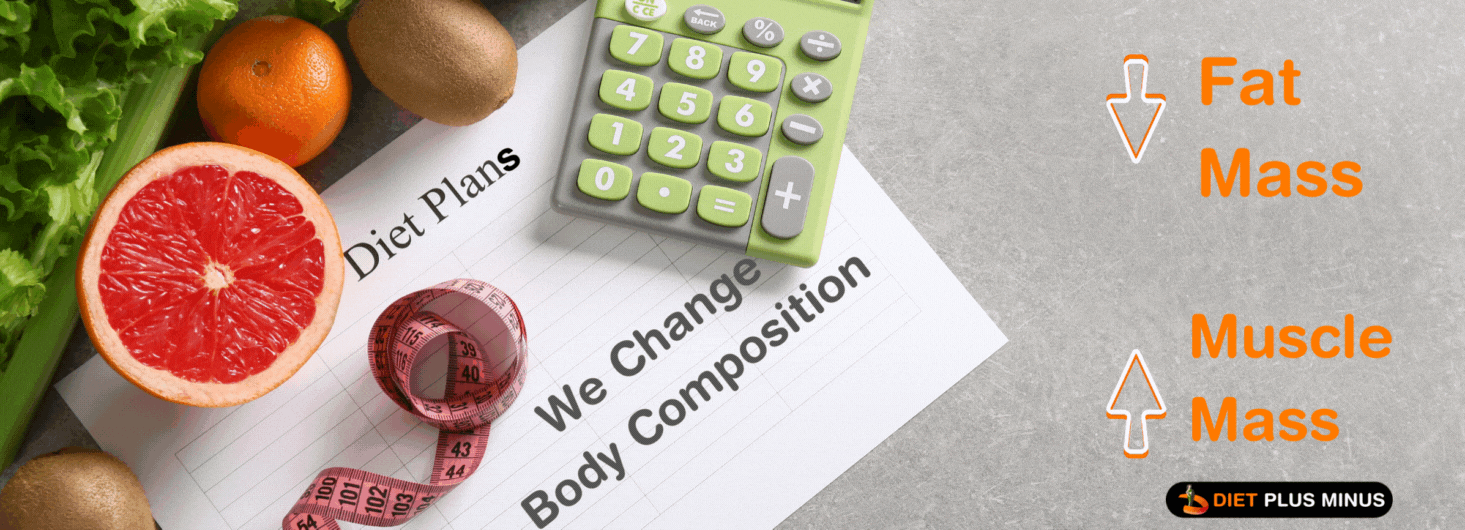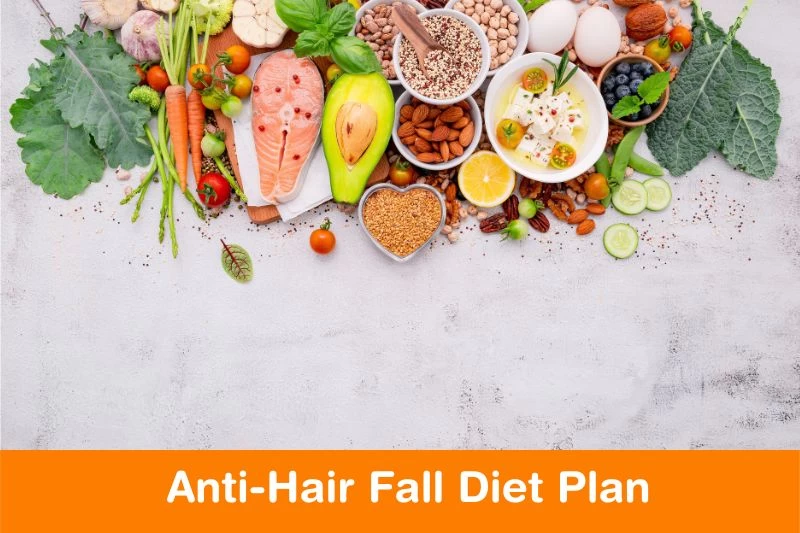


I. Introduction
A. Explanation of hair fall and its impact on self-esteem
Hair fall is excessive scalp hair loss. It causes hair loss, bald patches, and thinning. Hair loss affects confidence and self-esteem. Hair loss causes emotional distress and self-consciousness in many people, highlighting the need for effective treatments.
B. Introduction of Dr. Pankaj Kumar, a renowned dietician in Delhi and Dwarka, specializing in anti-hair fall diet plans
Dr. Pankaj Kumar, a well-respected dietician in Delhi and Dwarka, creates hair-loss-fighting diets. Dr. Kumar's nutrition strategies have helped many people regain their confidence and hair health. His personalised approach and deep understanding of hair fall causes make him a trusted professional. Dr. Kumar's holistic approach promotes healthy hair growth and prevents hair loss through diet and lifestyle changes.
II. Understanding the Link Between Diet and Hair Health
A. Explanation of how diet affects hair growth and strength
Food nourishes hair internally. Healthy hair growth and strength require a balanced, nutrient-rich diet. Biotin, vitamins A, C, and E, zinc, and iron help hair health. Deficient nutrients can weaken hair follicles and increase hair loss. Addressing nutritional deficiencies and eating hair-friendly foods can promote hair growth and prevent hair loss.
B. Discussion on the role of nutrient deficiencies in hair fall
Nutrient deficiencies cause hair loss. Biotin, the "hair vitamin," can weaken the hair shaft and increase hair loss. Insufficient iron, zinc, and selenium intake can disrupt hair growth and cause excessive shedding. We can restore hair health and reduce hair loss by targeting nutrient deficiencies with a targeted diet plan. Dr. Pankaj Kumar can recommend specific nutrients to promote hair growth.
III. Nutrients for Healthy Hair
A. Overview of key nutrients for promoting hair health, such as vitamins, minerals, and proteins
Hair growth and health depend on several nutrients. Vitamins A, E, and D promote scalp health and hair growth. Iron, zinc, and selenium help hair proteins and follicles grow. Proteins like keratin build strong, healthy hair. A balanced diet with these nutrients can nourish hair from within and improve its health.
B. Discussion on the importance of a well-balanced diet for preventing hair fall
A balanced diet prevents hair loss. Fruits, vegetables, whole grains, lean proteins, and healthy fats nourish hair and reduce hair loss. Nutrient deficiencies weaken hair follicles and increase shedding. A varied, nutrient-rich diet can nourish hair from the inside out, making it stronger and healthier.
IV. Recommended Foods for Stronger Hair
A. Description of specific food groups and their benefits for hair health, including examples of nutrient-rich options
Food groups can improve hair health. Lean meats, eggs, and beans provide amino acids for hair growth and strength. Omega-3 fatty acids from fish, walnuts, and chia seeds nourish the scalp and hair follicles. Vitamin C-rich foods like citrus fruits and bell peppers help produce collagen for strong hair, while iron-rich foods like spinach, lentils, and lean red meat support scalp blood flow.
B. Emphasis on incorporating a variety of fruits, vegetables, whole grains, lean proteins, and healthy fats
Diets rich in fruits, vegetables, whole grains, lean proteins, and healthy fats promote hair health. These nutrient-rich foods provide vitamins, minerals, antioxidants, and essential fatty acids to nourish hair follicles and promote hair growth. Colourful fruits and vegetables, whole grains like quinoa and brown rice, lean proteins like chicken and tofu, and healthy fats like avocados and nuts can help maintain healthy hair.
V. Meal Ideas and Recipes for Hair Health
A. Sample meal ideas and recipes that include hair-friendly ingredients
Here are some hair-friendly recipes:
Breakfast: Start your day with a spinach, berry, almond milk, and protein powder smoothie.
Lunch: Grilled salmon, avocado slices, mixed greens, and pumpkin seeds add protein, healthy fats, and nutrients to a salad.
Snack: Almonds, walnuts, and flaxseeds make a healthy, crunchy snack.
Dinner: Make a nutritious stir-fry with lean chicken or tofu, colourful bell peppers, broccoli, and a ginger-soy sauce over quinoa or brown rice.
These recipes include leafy greens, protein, healthy fats, and whole grains to promote hair growth and reduce hair loss.
B. Suggestions for incorporating these meals into a well-rounded diet plan
For a balanced diet, try these meals:
Plan ahead: Plan your weekly meals and make a shopping list with hair-friendly ingredients. This will keep you organised.
Meal prep: Wash and chop vegetables, marinate protein, etc. This will simplify meal prep on busy weekdays.
Balance your plate with vegetables, lean proteins, whole grains, and healthy fats. This will provide a well-balanced meal that supports your hair and overall health.
Body language: Notice how these meals affect you. Adjust ingredients if they don't agree with you. Your diet should reflect your needs and preferences.
These meals support hair health and promote overall wellness when added to a balanced diet.
VI. Lifestyle Factors for Healthy Hair
A. Importance of maintaining a healthy scalp and good hair care practices
Healthy hair requires good hair care and a healthy scalp. Four important reasons:
Healthy scalps support hair growth. Regular scalp cleansing, exfoliation, and moisturising removes oil, dirt, and product buildup, promoting hair growth.
Preventing damage: Avoiding heat styling, using gentle products, and limiting chemical treatments can help hair stay healthy and full.
Inflammation causes hair loss. Clean and well-nourished scalps reduce inflammation and risk of such conditions.
Healthy scalp and hair care practises make hair look shinier, smoother, and more manageable. Good hair care can boost self-confidence and well-being.
Prioritising scalp health and good hair care can boost hair growth and resilience.
B. Discussion on stress management and its impact on hair fall
Stress causes hair loss. Four stress management tips for hair health:
Telogen effluvium: Stress disrupts the hair growth cycle, causing more hair follicles to rest and shed. It can thin hair.
Hormonal changes: Chronic stress may alter hormone levels, causing hair loss. Stress hormones may disrupt hair growth.
Stress can cause dandruff, seborrheic dermatitis, and scalp itching. These issues can worsen hair loss and scalp inflammation.
Trichotillomania: Stress or anxiety can cause hair-pulling, resulting in hair loss or bald patches.
Stress can damage hair and overall health, but exercise, meditation, deep breathing, and emotional support can help reduce stress.
VII. Dr. Pankaj Kumar's Expert Recommendations
A. Overview of Dr. Kumar's expertise in providing personalized dietary plans for hair fall preventioDr Pankaj Kumar is a famous dietician who creates personalised hair fall prevention diets. He customises diets for hair loss sufferers based on his extensive knowledge and experience. Dr. Kumar develops sustainable hair health diets by considering nutrient deficiencies, lifestyle habits, and underlying health conditions. His expertise ensures customised guidance to address unique concerns and prevent long-term hair loss.
B. Encouragement to seek expert guidance for tailored dietary recommendations
Dr. Pankaj Kumar is an excellent resource for hair loss solutions. He can recommend customised hair fall prevention diets based on his experience. Dr. Kumar can provide expert advice and help you achieve healthier, stronger hair. Reach out to start regaining your confidence and hair health goals.
VIII. Conclusion
A. Recap of the key points discussed in the blog
This blog introduced Dr Pankaj Kumar, an expert dietician in anti-hair fall diets, and discussed how hair loss affects self-esteem. We examined how nutrition affects hair growth and strength. A balanced diet with vitamins, minerals, and proteins was stressed. We also recommended eating hair-friendly foods and stress management.
B. Encouragement to embrace an anti-hair fall diet plan for stronger, healthier hair
Enjoy healthy, beautiful hair despite hair fall. An anti-hair fall diet can nourish and strengthen your hair from within. Embrace nutrition and make small diet changes that can make a big difference. Get healthier hair today and gain confidence and beauty. Dr. Pankaj Kumar, the best dietician in Delhi and Dwarka, can help you fight hair loss.